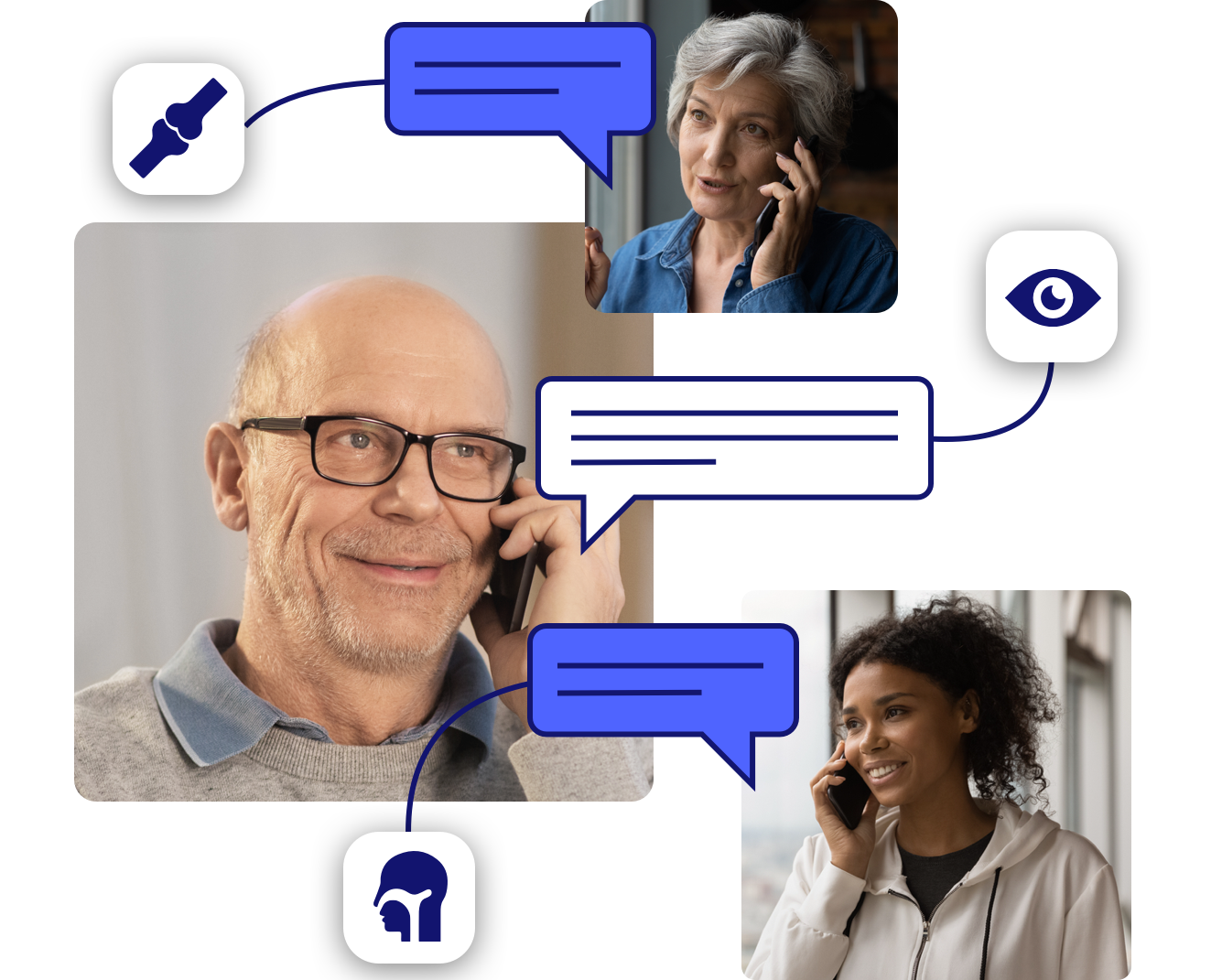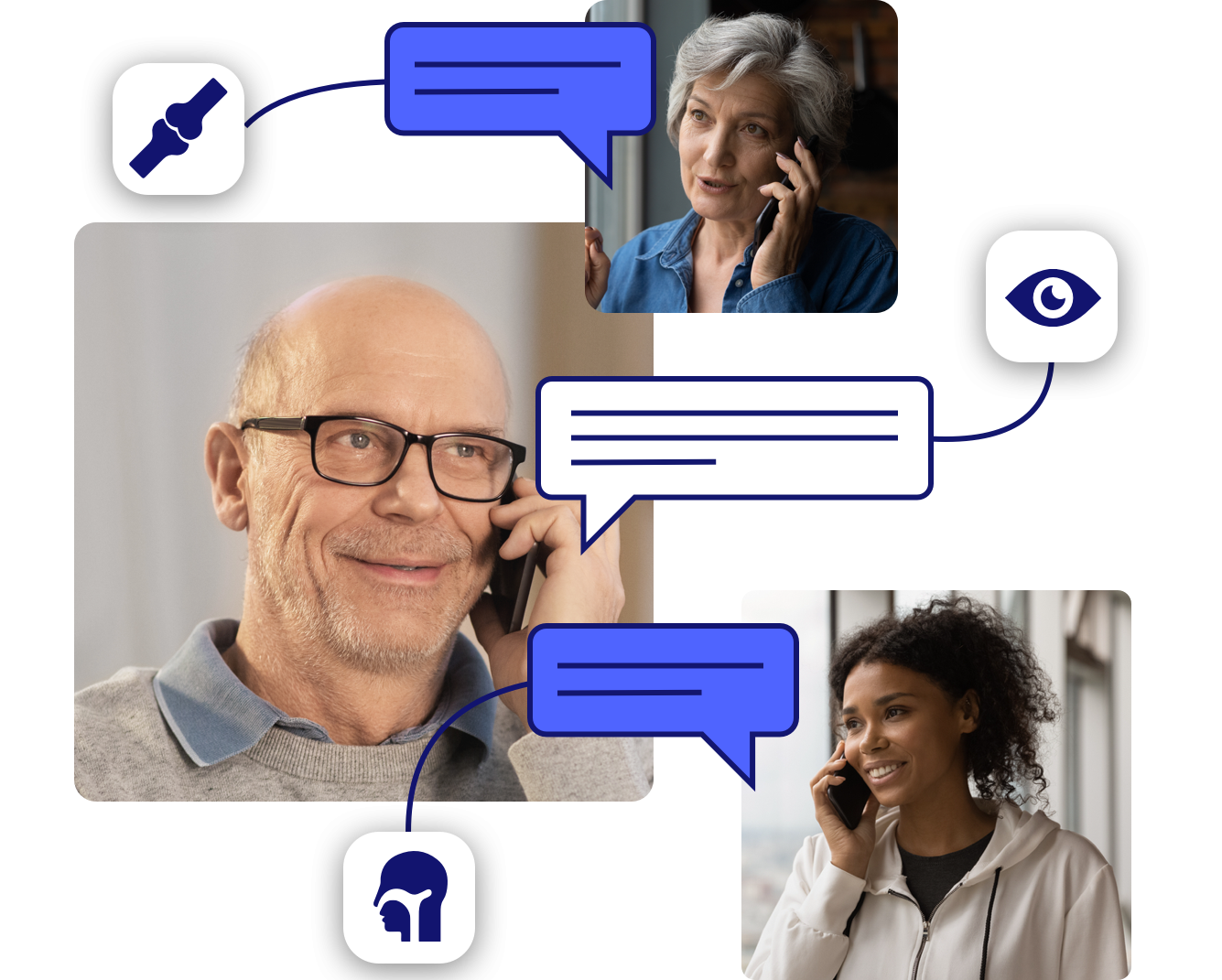Organisation
Ufonia
The Challenge
The NHS is under strain due to rising demand, increasing complexity of care, and chronic workforce shortages. The World Health Organization forecasts a global shortfall of 10 million healthcare workers by 2030, highlighting the urgent need for sustainable models of care that reduce dependency on clinician time.
Current systems are heavily reliant on face-to-face or scheduled virtual appointments, which often fail to meet patient preferences or needs. Many patients require more flexible access to care—delivered when it suits them, not just when appointments are available. This mismatch creates delays, increases non-attendance, and places further pressure on already stretched services.
At the same time, there's a critical need to shift from reactive to preventative healthcare. Traditional models struggle to deliver proactive outreach or education at scale, limiting the NHS’s ability to manage long-term conditions effectively or engage patients in self-care.
The challenge, therefore, is twofold: enabling high-quality, patient-centred care without adding to clinician workload, and scaling preventative and educational interventions in a way that is accessible to all, regardless of digital literacy, location, or socioeconomic background. Meeting these needs will be essential for a sustainable, resilient NHS.
Innovation
Dora delivers clinical-grade artificial intelligence through fully autonomous, voice-based consultations. As a UKCA-marked device, it conducts natural, telephone-based medical conversations—no apps, no digital literacy required. Mimicking the tone and flow of a human clinician, Dora supports multiple languages and is accessible to any patient able to answer a phone call. Designed for high-volume, low-complexity pathways, it helps reduce clinician workload while improving access and efficiency.
It supports a wide range of clinical pathways such as cataract surgery pre and post operative care, gynaecology triage and fragility fracture management. In cataract follow-ups, Dora autonomously manages up to 70% of cases, freeing clinicians for complex tasks.
Dora is procured through a subscription or activity-based model, allowing cost flexibility based on usage. The platform requires minimal staffing for operation, with no need for patient-side training. Initial setup may involve integration with IT systems and light training for clinicians on interpreting Dora’s outputs.
Designed to reduce clinical burden and increase efficiency, Dora provides a cost-effective, inclusive alternative to traditional consultation methods.
Impact
Dora has delivered measurable improvements in healthcare efficiency, patient satisfaction, and environmental sustainability. Now active across 16 NHS trusts and regions including Buckinghamshire, Oxfordshire, Berkshire West, Hampshire, and the Isle of Wight, Dora has facilitated over 75,000 consultations to date.
By automating routine clinical interactions, Dora allows clinicians to focus on patients with more complex needs, easing workforce pressures and improving care delivery. Administrative burdens have been reduced, and services have increased their capacity. Patients have responded positively, with an average recommendation score of 8 out of 10. Continuous input from Patient and Public Involvement and Engagement (PPIE) has shaped Dora’s user experience to be both patient-centred and clinically effective.
Dora is also advancing the NHS’s net-zero ambitions. In the cataract care pathway—one of the NHS’s most common procedures—Dora has significantly lowered carbon emissions. A hybrid carbon footprint analysis by the Centre for Sustainable Healthcare found that replacing traditional pre- and post-op face-to-face consultations with four Dora-led calls reduced emissions from 25.02 kg to just 0.25–0.50 kg CO₂e per patient. This equates to 129.31 kg CO₂e saved per 100 surgeries, or 16,037.9 kg annually across 14,500 procedures—the equivalent of 27 return flights from London to Munich.

Since we have had patient feedback we’ve realised that Dora is delivering the standard of care that we think is appropriate for our patients. It was fantastic when we came into contact with Ufonia. I cannot see how we will be able to look after these patients without innovations such as this.
Miss Sarah Maling, Consultant Ophthalmologist, Buckinghamshire Healthcare NHS Trust
"Every time I choose Dora because it seemed not to be a waste of time. [It is a] wholly unnecessary exercise to get up and get in the car, aim to be at the hospital at a certain time, find a parking space and all that goes with all that… Dora seems an ideal way as I can see it, of eliminating the vast majority of calls which will be from people saying "yes I'm fine, I've got no side effects."
Cataract patient
Date Published
June 2025

